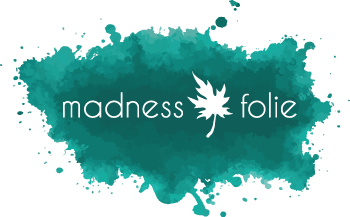A Utopian Experiment Exhibit
By Megan Davies, Geertje Boschma and Marina Morrow
Vancouver’s Mental Patient Association (MPA) has a well-deserved reputation for radicalism in its founding years, bolstered by media coverage and reminiscences in Canadian Irit Shimrat’s luminous Call Me Crazy: Stories from the Mad Movement and American Mad Movement activist Judi Chamberlain’s seminal On Our Own: Patient Controlled Alternatives to the Mental Health System. Emerging in the early 1970s at the same historical moment that the community mental health system was expanding, Canada’s first “mental health self-help group” challenged fundamental tenants of psychiatry. As a self-run, user-led community, MPA created a system of elected coordinators to run its drop-in, co-op homes, and numerous research and educational initiatives. It never relied on mental health professionals. Its arresting tabloid paper, In A Nutshell, was a leader in critical thinking about psychiatry, patient rights and mental health policy, often turning a searching eye on the internal workings of the group.
As academics engaged in the first historical research project on the MPA we were interested in the way in which the group dramatically rewrote the script for community mental health: indeed, this radicalism drew us to study the group. But as we came to know key players in the early MPA, and to familiarize ourselves with documents chronicling the group’s history, we began to have a conversation about instances when the organization collaborated with psychiatry and its institutions. In fact, this topic came up in discussions we had with the early players in the group as we worked with them on the development of a documentary about MPA. We also shared observations about how patients and professionals in the MPA milieu moved across previously prescribed roles in the emerging field of community mental health. It seemed that MPA worked simultaneously alongside and in opposition to mainstream mental health, committed to offering useful support to members while offering a sustained critique of the system. This process, we argue, interrupted existing power relationships and the performance of mental health work. And it made the MPA a powerful agent for change.
This exhibit explores the insights set out in the paragraph above, beginning with the life stories of founding MPA members Lanny Beckman, Dave Beamish, Jackie Hooper and Fran Phillips – individuals who took prominent roles in the organization. We first present these biographical sketches to illustrate how the organizational structure and culture of MPA fostered new claims to mental health expertise. The MPA supported its members in taking new and important roles in the emerging community mental health system as ex-patient, community-member, advocate and community mental health worker. We then link these personal stories to three case studies from the pioneering domains of MPA and community mental health that illuminate our analysis of these individuals’ leadership roles: Citizens Mental Health; Imagine Supportive Housing; MPA at Riverview Mental Hospital.
Yet MPA’s history is much more than the story of the handful of people and programs that we present here. Our hope is that this exhibit will expand over time, making public the histories of other MPA members and other MPA initiatives and inspiring histories of other survivor-driven initiatives. And a note on process: the people whose stories we share also engaged with creating them, allowing us unique access to their memories, personal papers and photographs, and responding to our many questions. As such, this exhibit is best understood as an ongoing dialogue about an organization whose history continues to intrigue so many in the mental health field.
Acknowledgement: Portions of this MPA exhibit text are drawn from a previous publication in Oral History Forum by Geertje Boschma, Megan Davies, and Marina Morrow (2014). “Those people known as mental patients…”: Professional and patient engagement in community mental health in Vancouver, BC in the 1970s. Oral History Forum d’histoire orale 34 (2014) and is used with permission.
OTHER MPA MATERIAL ON MADNESS CANADA:
The Inmates Are Running the Asylum, the 2013 MPA documentary co-created with MPA Founders, can be viewed here. Educational materials for using the film can be found here.
A 2018 public history exhibit, Legacies of MPA, held at Vancouver’s Gallery Gachet can be viewed here.
Additionally, Mad Canada’s Resources contain a substantial (and growing) amount of MPA material here.

